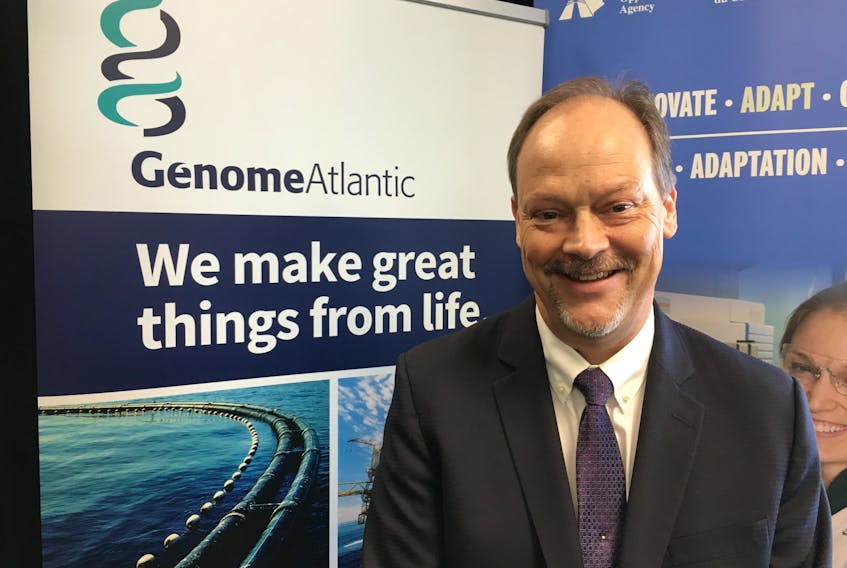At Genome Atlantic, “we make great things from life.”
Catchy slogan, but what does it mean? Here’s where our story starts to get more complicated. For longer than a decade, our organization has been using its understanding of the building blocks of life — DNA coding — to support sustainable economic development across Atlantic Canada.
Canada’s Innovation Science, and Economic Development Minister Navdeep Bains acknowledged the importance of this role on Jan. 10 when he announced $750,000 in business development funding for our organization through the Atlantic Canada Opportunities Agency (ACOA).
We would like to thank taxpayers, Minister Bains and ACOA for this investment, and for the recognition that genomics-based solutions are a key to Canada’s innovation strategy, to the growth of its biosciences sector, and to its economic success. We also thank the Government of Newfoundland and Labrador for recognizing the importance of genomics as an innovative technology and for its support of Genome Atlantic.
How do genomics technologies work?
For many people, the concept of the human genome — our genetic blueprint — is associated with the development of more sophisticated and personalized pharmaceuticals, along with an ability to detect disease earlier and more accurately. While that is true, our work at Genome Atlantic shows that genomics-based solutions have much wider applications as every organism on the planet has its own DNA instruction manual.
We are now working with partners in the private sector, research institutions and universities on a large number of projects, including:
• De-risking offshore oil and gas exploration by tracking micro-organisms that cluster in areas where petroleum seeps from under the seafloor.
• Slowing down the development of rust on offshore energy platforms through our understanding of microbial organisms and their effect on corrosion.
• The selection of Atlantic salmon broodstock to combat the effects of climate change.
• The development of more environmentally.friendly clinical feeds for the aquaculture sector.
• Microbe-enabled clean-tech applications in the mining industry.
• Combatting the challenges of disease in potato agriculture.
In addition to the energy and aquaculture examples mentioned, ocean sector applications include environmental DNA (eDNA) and genomics-based sensors to help with ongoing monitoring of species at risk. Genomics can also help us identify novel value-added products from renewable marine sources.
Genome Atlantic employs a small group of dedicated people with diverse backgrounds, united by a passion to bring significant contribution to the Atlantic economy. To date, in collaboration with many private and public-sector partners, we have enabled more than $90 million in applied genomics R&D, and over 1,500-person years of employment. In the last three years alone, Genome Atlantic has helped enable $21 million of new applied R&D in Atlantic Canada.
Genome Atlantic’s strategy is focused on the needs of industry and the development of genomics-based solutions for companies spanning seven different sectors (agriculture, aquaculture, energy, mining, environment, human health and forestry). The critical importance of genomics is being increasingly recognized by the private sector whose investment in Genome Atlantic projects has grown from three per cent in 2008 to an average of 22 per cent over the last three years.
While we have been acting locally in Atlantic Canada, it is important to recognize that our own organization’s growth reflects a global trend. The Organization for Economic Co-operation and Development (OECD) predicts biotechnology could contribute over US$1.1 trillion to OECD members’ gross domestic product (GDP) by 2030. At our organization, we share Minister Bains’ belief that genomics will be central to the development of the economy for the foreseeable future.
We are proud to be part of this story, to play a role in partnership with company leaders, innovators, scientists, entrepreneurs and others who are at the leading edge of the new economy.
Steve Armstrong, president and CEO
Genome Atlantic









